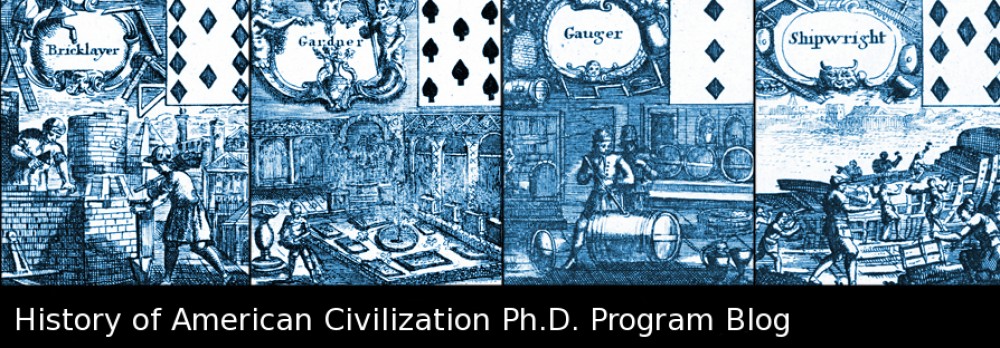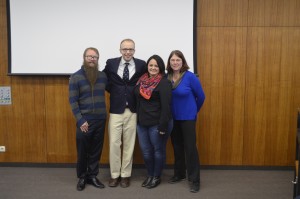By Alexander Lawrence Ames
Three doctoral candidates in the History of American Civilization program, as well as a program alum, shared their research at an international material culture symposium held in Mainz, Germany, from December 14th – 17th. Titled “Objects of Refuge/Refuge of Objects,” the symposium examined the material culture of refugee movement, along with the various theoretical and methodological approaches scholars bring to the study of artifacts. According to the symposium program, “the aim of this symposium is to reflect historically, methodologically, and theoretically on the material dimensions of ‘refuge,’ that is, on the way in which objects generate or confound refuge, or accompany or encumber refugees, in short, the materiality conditioning both the refuge and the refugees.”
The symposium was a collaboration of the Obama Institute for Transnational American Studies at the Johannes Gutenberg University in Mainz, the Center for Material Culture Studies at the University of Delaware, as well as the Winterthur Museum, Garden, & Library.
American Civilization program alum Rebecca Sheppard of the Center for Historic Architecture & Design at the University of Delaware presented a paper titled “Landscapes of Refuge: Recovering the Materiality of Underground Railroad Landscapes in Delaware,” which she co-authored with Catherine Morrissey, also of the Center for Historic Architecture & Design. American Civilization doctoral candidate Michelle Everidge Anderson read a paper titled “‘Housing is More Than Shelter’: The Material Culture of Migration in the United States.” Doctoral candidate Jesse Kraft presented “The Money of Refuge: How it Survived the Transit.” Candidate Alexander Lawrence Ames read a paper titled “‘The Quill is My Plow’: Religious Refuge, Reading, and Writing in German-Protestant Pennsylvania, ca. 1750-1850.”
The symposium offered a rich exchange of ideas surrounding the topic of movement of peoples and objects across space and time, as well as the various approaches to material culture study utilized by scholars today.





